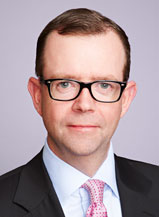CEO on Leadership: Chuck Scott, CEO, Cushman & Wakefield Canada
The CEO of the Canadian operation of a major global real estate services firm with more than 43,000 employees in over 60 countries offers his perspectives on leading and growing the business up north.

Chuck Scott
UPON EARNING a degree in economics from the University of Western Ontario, Chuck Scott entered the real estate business in the early 1990s at a national boutique real estate consulting firm known as The Gordian Group. He later became president of the company and held that position when the company was sold, in 2008, to Cushman & Wakefield, where he became president of its occupier services business. After Cushman & Wakefield merged with DTZ in 2015, the company’s global leaders launched a search for a new CEO of Canada. Scott — who was born and raised in St. John, New Brunswick — was appointed to that position in February 2016.
Development: As CEO, what are your core areas of focus?
Scott: My No. 1 focus is to expand the company through a strategic combination of organic and acquisition-based growth initiatives. This is all framed by a well thought-out strategic plan and guided by three main imperatives:
First, we’re driving a culture of high performance within Cushman & Wakefield. High performance does not mean ruthlessness; it means a desire to be the best. That is what our people, our clients and our community deserve. When you get high performance right, everything else is easier.
Second, we’re laser focused on making sure we have the right people in the right places. We want the best people in the business working at Cushman & Wakefield É but more than that, they need to be doing the right things. I can have a team of rock stars, but if they are not in their positions of highest and best use, we’re shortchanging ourselves and our clients.
Third, we make sure we’re organizing ourselves around our clients. I am a huge proponent of alignment. Understanding what is truly important to our occupier and investor clients is the key to managing our relationships.
Development: What qualities do you look for when hiring senior staff?
Scott: The real estate business is like a roller-coaster ride, with lots of ups and downs. Therefore, I need people in senior positions who are calm and can keep things in perspective. The next quality I look for is courage: I need senior staff to be brave, and that means sometimes having difficult conversations with people in real time and making decisions that may not be popular, but are right.
Finally, and this may be the Maritimer in me, but I want to work with people who are humble. Humility is probably the No. 1 criteria for all employees, but particularly for senior staff.
Development: Apart from the data your own firm produces, what economic or market indicators do you track on a regular basis to keep up with the industry?
Scott: We focus on data that gives us predictive insights, data that drives real estate indices. For example, we track real GDP growth, job growth, benchmarking data, migration patterns and demographics from suburbs to downtown. Cushman & Wakefield has 350 researchers around the globe and produces 1,800 market reports annually. We track core data in 80 major U.S. cities and across all of the major Canadian markets. This is critical for many of our clients, particularly those who have an Americas focus.
Development: Over the next 18 months, what challenges/opportunities do you see for the commercial real estate industry?
Scott: We are watching markets like Calgary that are dependent on the oil sector. These markets have given back space over the last couple of years because of that depressed resource market. These markets will come back, but will continue to face challenges over the near term.
We also need to monitor interest rates in the U.S., as the modest rate rise initiated in December 2016 is already putting upward pressure on interest rates in Canada. This, of course, will impact debt service costs, which will touch a variety of real estate sectors, including the investment markets. Of course, we do not yet know what the impacts of shifting U.S. government policies around real estate will be, but interest rates are already rising.
In terms of opportunities, today’s challenges in the resource sector could turn into an opportunity if oil prices continue to rise.
Development: Looking out three to five years, what do you see on the horizon that will impact the industry? What are you doing today to prepare for those challenges?
Scott: One of the biggest changes I have seen during my 23 years in the industry, which will continue to impact us three to five years out, is the way that stakeholders make decisions. People are not looking for just a real estate broker anymore; they are looking for an integrated real estate solutions provider.
Today, stakeholders are thinking about things such as corporate social responsibility and attracting and retaining the best talent. These were not part of the real estate decision 20 years ago. Market intelligence, research and information are still important, but today it is what you do with that information that differentiates you.
Stakeholders will still need someone to negotiate a great deal, but today they also need so much more than that. Although we at Cushman & Wakefield will never lose sight of the fact that we are a brokerage firm, and that is at the very core of what we do, we are making sure that we are also a service partner with the thought leadership and experts who can help clients make an occupancy decision as opposed to just a real estate decision.
Development: What is the most valuable lesson you’ve learned over the course of your real estate career?
Scott: I have learned not to try to be the smartest person in the room because, No. 1, I rarely am and, No. 2, in the grander scheme, that is not what’s important. So I have learned to listen and to try to understand what makes people tick and what is important to them — and then to develop a solution that fits them.
Ron Derven, contributing editor, Development




